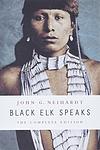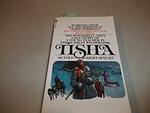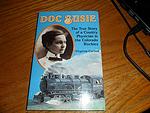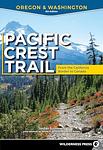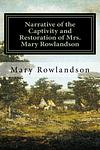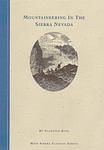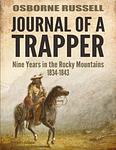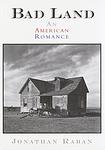The Greatest "Nonfiction, Frontier and pioneer life" Books of All Time
Click to learn how this list is calculated.
This list represents a comprehensive and trusted collection of the greatest books. Developed through a specialized algorithm, it brings together 284 'best of' book lists to form a definitive guide to the world's most acclaimed books. For those interested in how these books are chosen, additional details can be found on the rankings page.
Genres
Frontier and pioneer life is a category of books that focuses on the experiences of individuals and communities who lived on the edge of civilization during the expansion of the United States in the 19th century. These books typically explore the challenges and triumphs of settlers as they established new homes, farms, and towns in the wilderness, often facing harsh weather, dangerous wildlife, and conflicts with Native American tribes. The genre also includes stories of explorers, fur traders, and other adventurers who ventured into uncharted territories, as well as memoirs and biographies of notable figures who played a role in shaping the American West.
Countries
Date Range
Reading Statistics
Click the button below to see how many of these books you've read!
Download
If you're interested in downloading this list as a CSV file for use in a spreadsheet application, you can easily do so by clicking the button below. Please note that to ensure a manageable file size and faster download, the CSV will include details for only the first 500 books.
Download-
1. Journals by Meriwether Lewis, William Clark
This book is a compilation of the detailed journals kept by two explorers during their expedition across the American West, from 1804 to 1806. The journals provide a first-hand account of their encounters with Native American tribes, their observations of new plant and animal species, and the challenges they faced while traversing uncharted territories. The explorers' writings not only offer insights into their historic journey but also serve as a valuable resource for understanding early 19th-century American history and the country's westward expansion.
-
2. Black Elk Speaks by John G. Neihardt
"Black Elk Speaks" is a profound narrative that recounts the life of a Native American medicine man from the Oglala Lakota tribe. It provides a unique perspective on the Lakota people's history and culture, their spiritual beliefs, and the impact of westward expansion on their way of life. The book also delves into the protagonist's personal spiritual visions, which he believes have significant prophetic and healing powers. The narrative is a poignant exploration of the clash between cultures and the devastating effects of colonization on indigenous peoples.
-
3. The Solace of Open Spaces by Gretel Ehrlich
This book is a collection of essays that explore the author's experiences and observations after moving from the city to the rural landscapes of Wyoming. The narrative delves into the harsh and beautiful realities of living in the American West, the author's personal healing after a tragic loss, and the solace found in the vast open spaces. The book is a profound meditation on nature, solitude, grief, resilience, and the transformative power of landscape.
-
4. Roughing It by Mark Twain
This book is a semi-autobiographical travelogue that chronicles the author's journey across the American West to Nevada. It covers his experiences as a miner, newspaper reporter, and lecturer, and includes humorous and insightful observations about the people, places, and culture he encounters. The narrative also provides vivid descriptions of the natural landscape, as well as commentary on the social and political issues of the time.
-
5. Mountain Charley by Elsa Jane Guerin
"Mountain Charley" is the true account of a woman's remarkable adventures in the American West during the mid-19th century. After a series of personal tragedies, including the loss of her husband, she assumes the identity of a man named Charley to navigate the perils and prejudices of the era. Disguised as a male, she works various jobs, from miner to stagecoach driver, and even becomes a bounty hunter, all while seeking vengeance for her husband's death. Her story is one of resilience and defiance, challenging the gender norms of her time and showcasing the untold grit of pioneer women.
-
6. Tisha by Robert Specht
"Tisha" is a biographical novel based on the true story of a young woman who moves to the Alaskan wilderness in the 1920s to become a teacher. The protagonist faces numerous challenges including harsh weather, isolation, and cultural differences, but remains steadfast in her commitment to educate the children in her care. The story also explores her fight against racial prejudice in the community, as well as her love affair with a half-Native man.
-
7. Doc Susie: The True Story Of A Country Physician In The Colorado Rockies by Virginia Cornell
This book chronicles the inspiring life of a pioneering female physician who, in the early 20th century, left her comfortable city life to practice medicine in the harsh, unforgiving environment of the Colorado Rockies. Facing the challenges of isolation, gender bias, and limited medical resources, she earned the trust and respect of the rugged community through her tireless dedication, compassion, and medical skill. Her story is a testament to the indomitable spirit of an extraordinary woman who overcame societal constraints and personal adversities to serve the needs of her rural patients.
-
8. All But The Waltz by Mary Clearman Blew
"All But The Waltz" is a poignant memoir that weaves together personal narrative and the history of the American West. Through a series of essays, the author reflects on her family's past and the hardships they endured, including loss, isolation, and the struggle to maintain a ranch in the harsh Montana landscape. The book delves into themes of memory, identity, and the changing face of the West, as the author grapples with her own place in a lineage of strong but troubled ancestors. It is a meditation on the complexities of family legacy and the bittersweet dance of embracing one's heritage while stepping into the future.
-
9. The California And Oregon Trail by Francis Parkman
This book is a vivid historical account of a 19th-century journey across the American frontier, detailing the author's experiences while traveling from the Missouri River to the Rocky Mountains and onward to the Pacific Coast. The narrative captures the rugged beauty of the landscape, the hardships faced by pioneers, and the complex interactions with Native American tribes. The author's observations provide a rich portrayal of the untamed West, offering insights into the daily life, culture, and spirit of adventure that characterized the era of westward expansion.
-
10. Narrative Of The Captivity And Restoration Of Mrs. Mary Rowlandson by Mary White Rowlandson
This book is a firsthand account written by a colonial American woman who was captured by Native Americans during King Philip's War in 1675. The narrative details her experiences over the eleven weeks of her captivity, describing the hardships she faced, her observations of Native American life, her struggles with her captors, and her reflections on her faith. Throughout her ordeal, she relies on her religious beliefs to find meaning and solace, ultimately being ransomed back to her English community. The work is one of the earliest and most famous captivity narratives, and it offers a complex and sometimes conflicting perspective on the relationship between early American settlers and Native Americans.
-
11. Once Upon An Eskimo Time by Edna Wilder
This book is a heartfelt collection of stories and memories that offer a window into the traditional lifestyle of the Inupiat Eskimos of Alaska. The narrative, rich with cultural heritage, is a personal account from the author's own experiences growing up in a remote village. It captures the essence of a community bound by survival, tradition, and the rhythms of the Arctic environment. Through tales of hunting, fishing, and sharing, the book paints a vivid picture of the values and practices that have sustained the Inupiat people for generations, while also touching on the challenges and changes brought by contact with the outside world.
-
12. Little Heathens: Hard Times And High Spirits On An Iowa Farm During The Great Depression. by Mildred Armstrong Kalish
"Little Heathens" is a memoir of Mildred Armstrong Kalish's childhood on an Iowa farm during the Great Depression. Kalish recounts the daily struggles and joys of life on the farm, from making do with limited resources to finding creative ways to entertain themselves. Through her vivid descriptions and humorous anecdotes, Kalish paints a picture of a resilient and close-knit community that persevered through tough times with a spirit of determination and optimism.
-
13. The Exploration of the Colorado River by John Wesley Powell
This book is a firsthand account of the first U.S. government-sponsored passage through the Grand Canyon. The author, a one-armed Civil War veteran, and his team of nine men risked their lives to accomplish this feat in 1869. They faced dangerous rapids, food shortages, and potential attacks from Native American tribes. The narrative provides detailed descriptions of the geography, geology, and Native American inhabitants of the region, offering invaluable insights into the uncharted territory of the American West.
-
14. The Oregon Trail by Francis Parkman
"The Oregon Trail" is a historical account of a two-and-a-half month summer tour in 1846 of the U.S. states of Nebraska, Kansas, Colorado, and Wyoming. The book captures the experiences of the author and his companion as they journey from St. Louis to the Rocky Mountains and back. The narrative is rich with descriptions of the landscapes, wildlife, and people they encounter, including several Native American tribes. The book provides a vivid depiction of the West before industrialization and settlement.
-
15. Mountaineering in the Sierra Nevada by Clarence King
This book is a collection of personal accounts and observations about climbing in the Sierra Nevada during the late 19th century. The author details his experiences, including the physical and mental challenges, the breathtaking beauty of the landscape, and the thrill of exploration and discovery. He also provides insightful commentary on the geological features of the region, the indigenous people he encountered, and the impact of the Gold Rush on the environment and society.
-
16. Life in the Far West by George Frederick Ruxton
"Life in the Far West" is a vivid account of the early American frontier, highlighting the lives of trappers and traders in the Rocky Mountains. The narrative, based on the author's own experiences, provides detailed descriptions of the rugged lifestyle, the diverse characters encountered, and the often dangerous and violent events that occurred. It also offers an insightful look into the interactions between the settlers and the native tribes, making it a valuable historical resource.
-
17. The Adventures of Captain Bonneville by Washington Irving
This book chronicles the real-life expeditions of a U.S. Army officer in the American West. The officer, intrigued by the vast frontier, takes a leave of absence from the military to explore the wilderness, trade with Native American tribes, and hunt game. His adventures include encounters with various Native American cultures, survival in harsh conditions, and exploration of uncharted territories. The narrative presents a vivid picture of the American West during the era of Westward Expansion.
-
18. Journal of a Trapper by Osborne Russell
"Journal of a Trapper" is a vivid first-person account of a trapper's life in the Rocky Mountains during the early 19th century. The author details his experiences over a nine-year period, providing a unique perspective on the American West. His narratives include encounters with various Native American tribes, observations of the wildlife, and descriptions of the breathtaking landscapes. The book serves as an important historical document, offering insights into the fur trade era and the exploration of the American frontier.
-
19. Adventures in the Wilderness by William H. H. Murray
"Adventures in the Wilderness" is a classic guide to wilderness exploration and survival, written by a prominent outdoorsman of the 19th century. The book provides detailed and practical advice on topics such as camping, hunting, fishing, and navigating through the wilderness. It also offers philosophical reflections on the benefits of spending time in nature, and contains vivid descriptions of the author's own adventures in the great outdoors.
-
20. Journal of the Voyage to the Pacific by Alexander Mackenzie
"Journal of the Voyage to the Pacific" is a travelogue that documents the author's journey from Great Slave Lake in Northwest Territories, Canada, to the Pacific Ocean. The author, an explorer, details the challenges and experiences he encountered during the first recorded transcontinental crossing of North America north of Mexico. The book provides an insightful view into the landscapes, indigenous cultures, and natural history of the late 18th century North American continent.
-
21. Narrative of a Journey Across the Rocky Mountains to the Columbia River by John Kirk Townsend
This book is a first-hand account of an adventurous journey across the Rocky Mountains to the Columbia River. The author shares his experiences and observations from the trip, providing detailed descriptions of the terrain, wildlife, and Native American tribes he encountered along the way. His narrative offers a fascinating glimpse into the American West during the early 19th century, serving as both a historical document and a captivating adventure story.
-
22. Prairie Fires: The American Dreams of Laura Ingalls Wilder by Caroline Fraser
This book presents a deeply researched biography of Laura Ingalls Wilder, the author of the "Little House on the Prairie" series. It provides an in-depth look into Wilder's life and the historical context in which she lived, from the westward expansion to the Great Depression and beyond. The narrative explores the complex relationship between Wilder and her daughter, the hardships they faced, and the ways in which these experiences shaped Wilder's writing. It also delves into the myths and realities of American frontier life, challenging the often-romanticized view of pioneer life.
-
23. Bad Land: An American Romance by Jonathan Raban
This book is a historical exploration of the American West, specifically the region of Eastern Montana. The author delves into the experiences of the British and Scandinavian settlers who were lured to this area in the early 20th century by railroad advertisements promising fertile farmland. Through a combination of historical research, personal narratives, and travelogue-style observations, the author paints a vivid picture of the harsh realities these settlers faced, including drought, isolation, and economic hardship. The book also reflects on the lasting impact of these experiences on the region's culture and identity.
-
24. The End of the Myth: From the Frontier to the Border Wall in the Mind of America by Greg Grandin
The book explores the concept of the frontier throughout American history, arguing that it has been a central myth that has shaped the nation's ideologies and policies, from its inception to the present day. The author traces this myth from the country's founding, through westward expansion, to the current political climate and the contentious issue of the border wall. The book suggests that the frontier has served as a symbol of freedom and opportunity, but also of conflict and exclusion, reflecting the country's struggle with its own identity and values.
-
25. A Daughter of the Middle Border by Hamlin Garland
This memoir chronicles the life of the author's family as they move from Wisconsin to Iowa, then to South Dakota during the late 19th century. The narrative focuses on the hardships and challenges of pioneer life, the author's own evolution as a writer, and the significant role his sister played in his life. The book offers a poignant depiction of the American frontier and its influence on the people who lived there.
Reading Statistics
Click the button below to see how many of these books you've read!
Download
If you're interested in downloading this list as a CSV file for use in a spreadsheet application, you can easily do so by clicking the button below. Please note that to ensure a manageable file size and faster download, the CSV will include details for only the first 500 books.
Download
